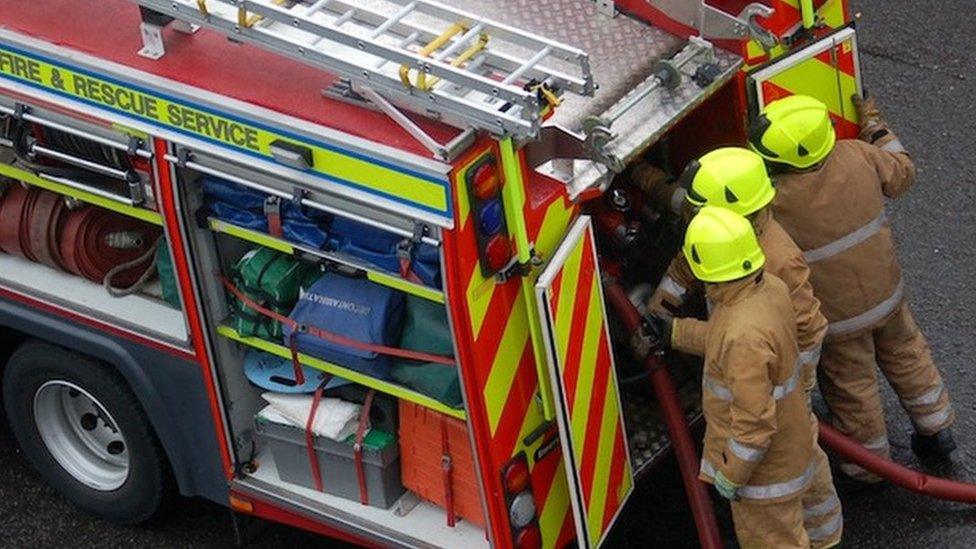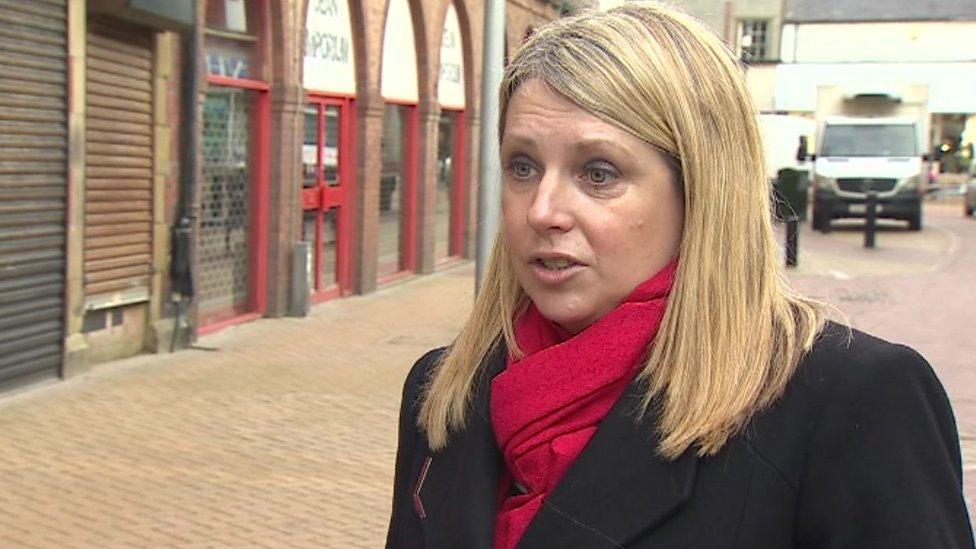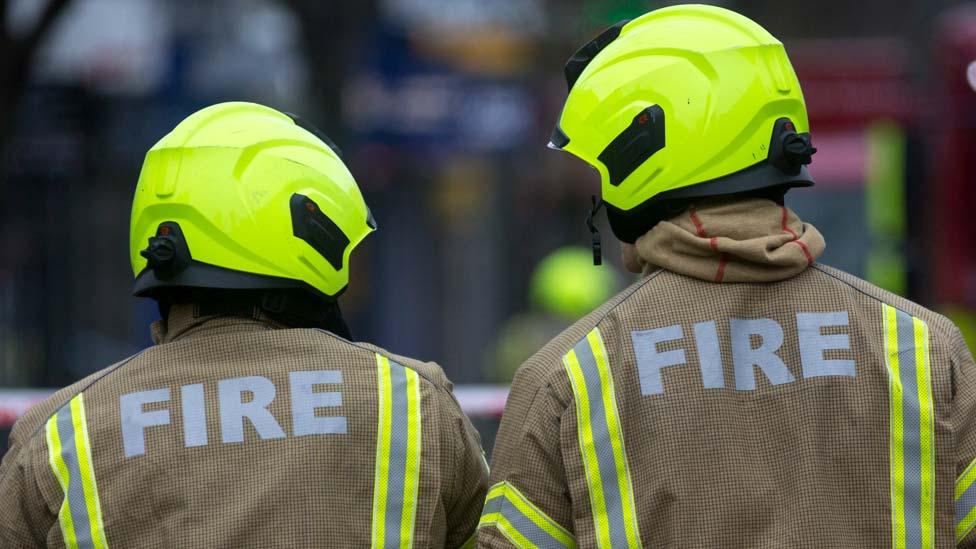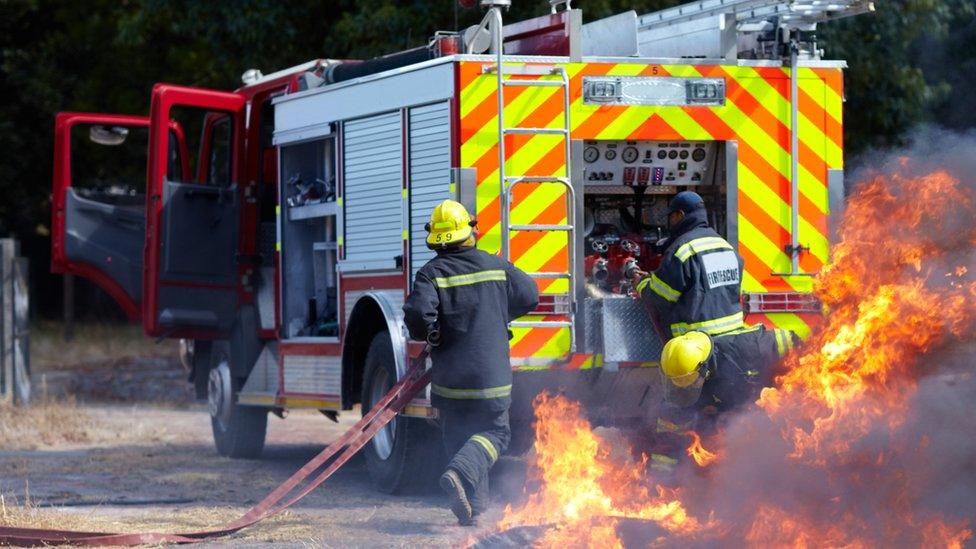FBU dismisses claim firefighters are 'under-occupied'
- Published

The FBU said firefighters rescued more than 200 people each month in Wales
The Fire Brigades Union (FBU) has dismissed as "ludicrous" the idea firefighters in Wales could take on NHS work because they are "under occupied".
The Welsh Government suggested on Thursday they could take on work such as responding to medical emergencies.
FBU General Secretary Matt Wrack said the government's vision had been announced without consultation with the union or firefighters.
But the Welsh Government insisted the issue had been "discussed extensively".
Mr Wrack said firefighters in Wales rescued more than 200 people every month, and were operating with 300 fewer firefighters than in 2010.
"Any suggestion that they are 'under-occupied' is ludicrous," he added.
"We are always open to discussing the role of firefighters, subject to negotiation, funding, training and resourcing.
"But the Welsh government should bear in mind that firefighters are not doctors, nurses, paramedics, or social workers and nor should they be," he continued.

Hannah Blythyn said firefighters could "make a real contribution to supporting the NHS"
Mr Wrack was responding to a statement made by Hannah Blythyn, the minister for the fire service.
She claimed there was "clear potential" for the fire service to support the NHS.
This, she said, could secure "better outcomes and significant savings".
Responding to the union's claims, a Welsh Government spokeswoman said: "The expansion of firefighters' roles has been discussed extensively over a number of years with the FBU through the national negotiating machinery, and the FBU have indicated their support in principle for such expansion.
"Fire prevalence rates have fallen by 30% since 2010 and to enable the preservation of firefighters' jobs we want to capitalise on their skills and maximise their value within the communities they already devotedly serve."
Last week a North Wales Fire and Rescue Service community manager revealed it was becoming increasingly difficult to recruit on-call firefighters.
Retainer staff - who man more than 70% of the fire station in Wales - need to be able to leave their main jobs the moment they are needed and are usually on call 120 hours per week.
- Published17 December 2019

- Published15 January 2020

- Published5 February 2020
